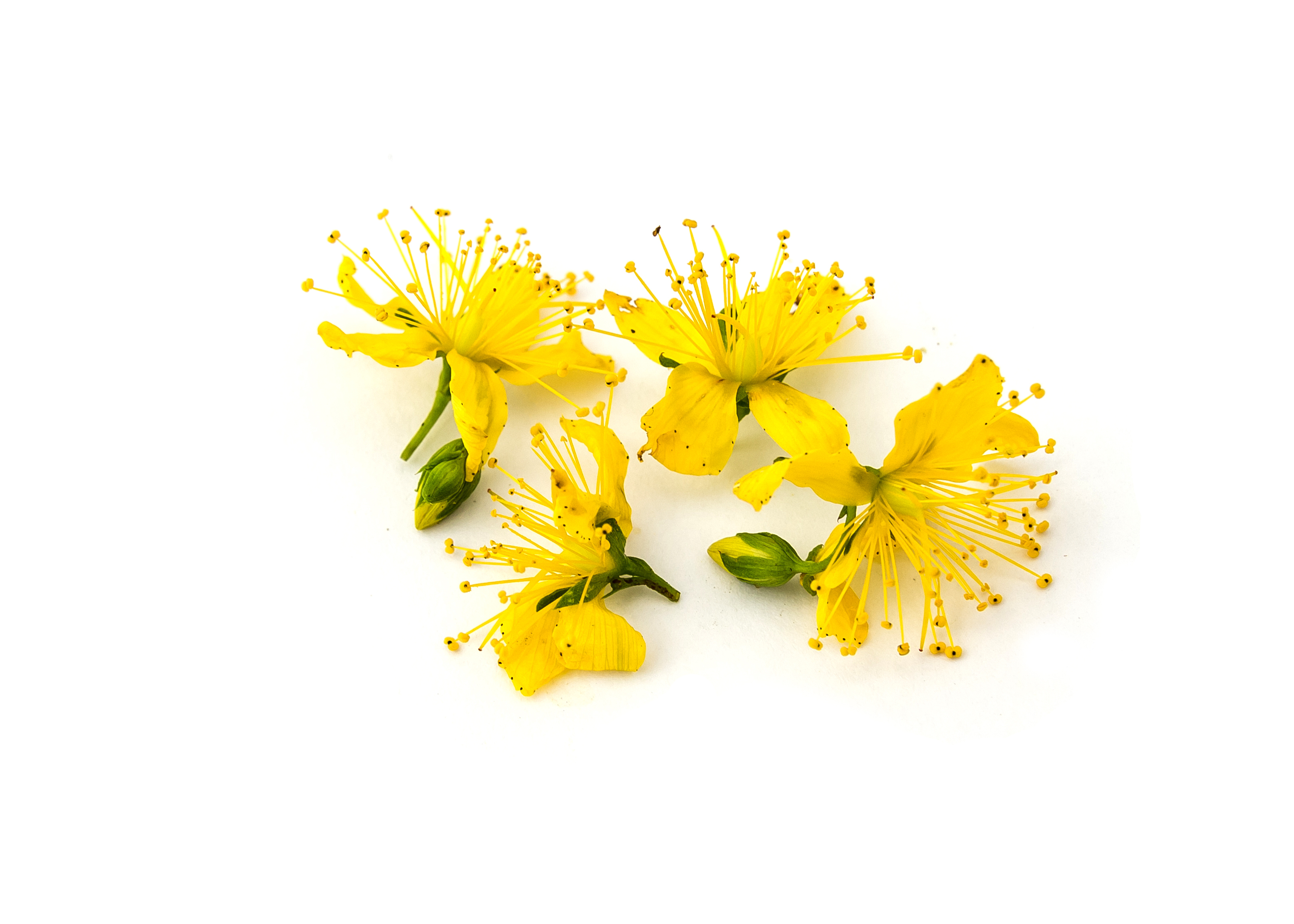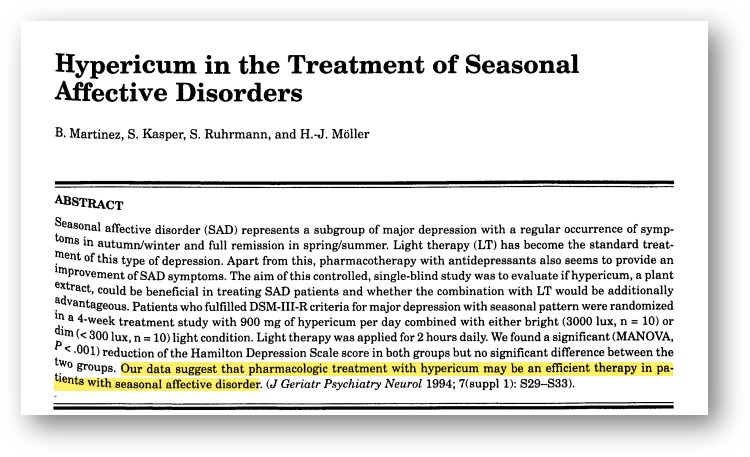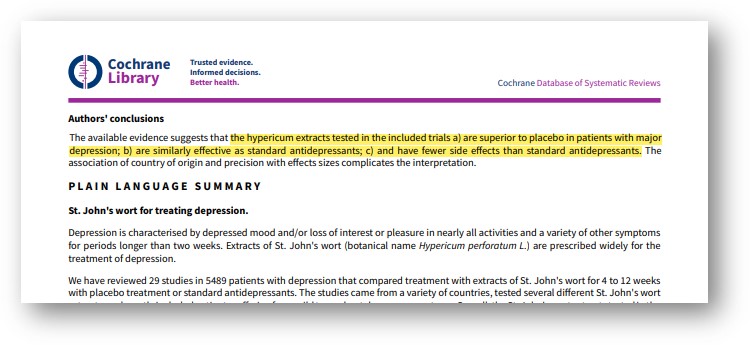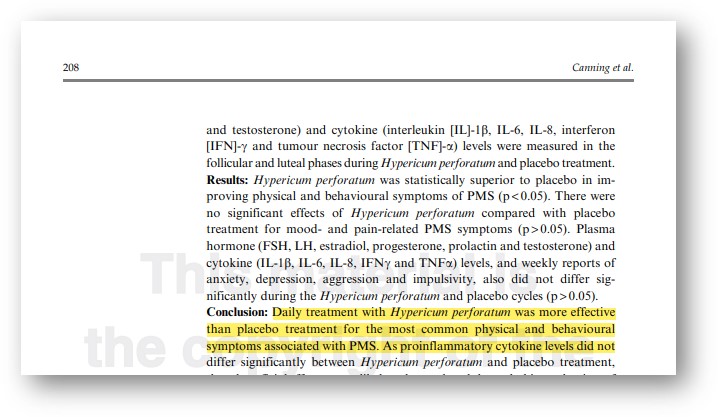When you're depressed for no reason, take a natural mind nutrient called 'this'.
1. Improvement
of symptoms of depression2. Improvement of symptoms of seasonal affective disorder3. Improvement of premenstrual syndrome

Hello. I'm a pharmacist Jinny.
Feeling depressed and lethargic for no reason is something that many of you have experienced. Have you ever ignored this by saying, "Maybe it's because I'm not feeling well," or "I've been stressed out a lot lately." If so, take a look at St. John's Wort, a natural heart nutrient that we introduce to you today.
St. John's wort, also known by its scientific name Hyperericum perforatum and chlorine grass, is known to prevent the reuptake of neurotransmitters serotonin, dopamine, and noradrenaline, and to increase their concentration in the body by inhibiting their metabolism. This contributes to the improvement of anxiety, lethargy, and depression, and is also used pharmaccolically in Europe and the United States.
1. Improves runny nose and nasal congestion
As scientific circles continue to report that lactobacillus has an effect on improving immunity, the question of whether it can play a role in improving autoimmune diseases such as allergies has emerged as a matter of utmost interest.
In the midst of this academic interest, in 2020, Nutrients reported the results of a study on the effectiveness and safety of Lactobacillus NVP-1703 in improving perennial allergies. In this study, the effects of NVP-1703 on runny nose and nasal congestion are summarized as follows:
"St. John's wort extract tested in clinical trials is a) superior to placebo in patients with major depression; b) similarly effective to standard antidepressants; C) It has fewer side effects than standard antidepressants"
2. Improvement of Seasonal Affective Disorder Symptoms
Have you ever experienced a feeling of depression that intensifies in the fall or winter and gets better in the spring and summer? These symptoms are called 'seasonal affective disorder' (SAD) and are sometimes grouped into a subgroup of depression based on the intensity of the symptoms.
A paper published in the Journal of Geriatric Psychiatry and Neurology conducted a clinical study on the improvement of St. John's wort extract in seasonal affective disorder and reported the results as follows:

"Our data suggest that pharmacological treatment with St. John's wort extract may be an effective management method for seasonal affective disorder symptoms."
3. Improvement of premenstrual syndrome (PMS)
Premenstrual syndrome (PMS) is a physical and emotional discomfort that begins before menstruation begins, and includes symptoms such as irritability, anxiety, severe mood swings, and depression. It is said to occur in about 20~50% of women of childbearing age, and it can be said that it is one of the inconveniences that has become a daily routine for many women.
Following several research reports on the improvement of depression from St. John's wort extract, a clinical study on the improvement of premenstrual syndrome (PMS) was reported in 2010.
"In improving the main physical and behavioral symptoms associated with premenstrual syndrome (PMS), St. John's wort extract is more effective than placebo."
This is a brief overview of the main functions of St. John's wort that have been tested by the scientific community. Just as you need to take in nutrients to keep your body healthy, you need to take the right nutrients to keep your mind healthy.
I hope you have a healthy day in body and mind. It was Jinny.
[1] Rajagopal V. Sekhar, Siripoom V. McKay, Sanjeet G. Patel, Anuradha P. Guthikonda, Vasumathi T. Reddy, Asho k Balasubramanyam, Farook Jahoor (2011). Glutathione Synthesis Is Diminished in Patients With Uncontrolled Diabetes and Restored by Dietary Supplementation With Cysteine and Glycine. Diabetes Care, 34(1), 162-167.
[2] Rachel I. M. van Haaften, Guido R. M. M. Haenen, Chris T. A. Evelo, Aalt Bast (2003). Effect of Vitamin E on Glutathione-Dependent Enzymes. Drug Metabolism Reviews, 35, 215-253.
[3] Vargas-Mendoza, N., Madrigal-Santillán, E., Morales-González, A., Esquivel-Soto, J., Esquivel-Chirino, C., García-Luna Y González-Rubio, M., Gayosso-de-Lucio, J. A., & Morales-González, J. A. (2014). Hepatoprotective effect of silymarin. World journal of hepatology, 6(3), 144–149.






![[St. John's Wort Benefits] 3 Benefits of Natural Mind Nutrient, St. John's Wort](http://esther-mall.com/cdn/shop/articles/4_17a8225e-cadb-4bd1-b845-08dd110ad98c.jpg?v=1734625287&width=480)
![[Collagen Benefits] From skin to hair and joints, Ildang White Collagen](http://esther-mall.com/cdn/shop/articles/56.jpg?v=1734026986&width=480)
